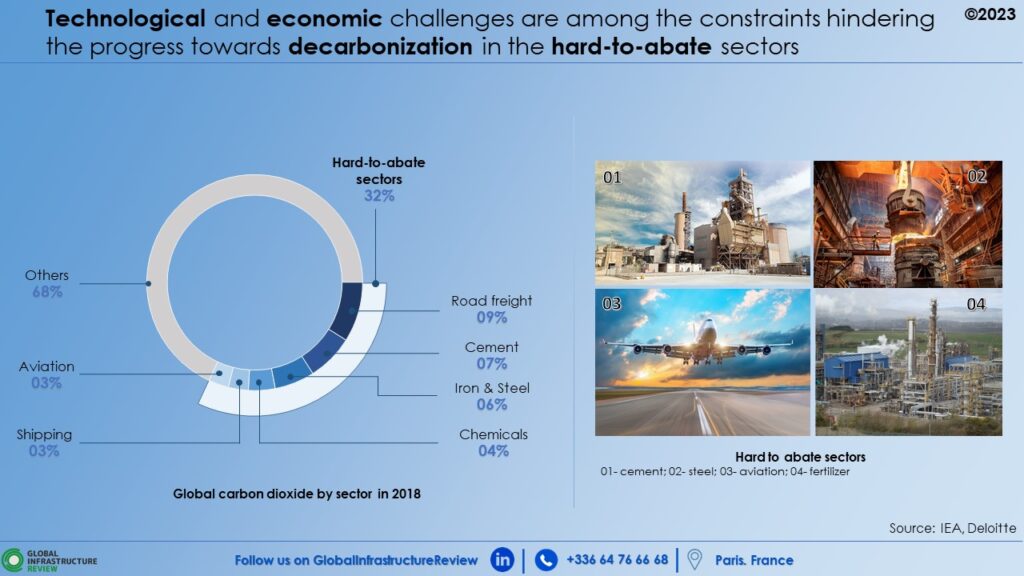Industrial sectors, such as cement, steel, aviation, heavy trucking and freight transport, ammonia, are very critical to the global economy and are fundamental elements of human society today.
Whether it is cement for infrastructure, steel for cars, chemicals for medicines, fertilisers for food security, the role played by these industrial sectors is essential and undeniable.
Decarbonising these sectors and extending their lifespan is important to sustain economic growth and lift millions of people out of poverty.
Although industrial sectors contribute about 30% of global CO2emissions (IPCC), ~10 Gton CO2, they are considered as hard to abate sectors, mainly due to the scale of technological challenge. The following can be highlighted as some challenges faced in the sectors.
1- Technological challenge: the way forward to solve the “net zero” equation in the industrial sector is not clear. Less innovation and cost reduction have been observed compared to the progress witnessed in the energy sectors.
2- Technical challenge: The infrastructure required to achieve the transition to net zero is a huge challenge as it may require changes in the overall industrial processes, redesign of furnaces that may allow the use of alternative fuels.
3- Economic challenge: Investing in low-carbon processes and technologies will increase production costs, which is a disadvantage for producers, as the willingness to pay more for a sustainable or decarbonised product is not yet present.

To meet these challenges, companies and organisations would need to lean forward, start executing, and become familiar with decarbonisation technologies.
Here are four major solutions shared by Nikhil Ati from Mckinsey that will be essential to accelerate organisations’ decarbonisation initiatives:
1- Prepare the organisation for change: Hire talent today because this wave is coming, develop the right capabilities within the organisation, elevate decision making to the right level so that decisions are made quickly.
2- Create detailed and credible decarbonisation plans: The more detailed the plans, the more the organization will learn about what works and what doesn’t.
3- Participate in ecosystems: Companies need to look outside, open up and really engage in the ecosystem, bringing suppliers, customers, discussing open collaboration, creating win-win solutions.
4- Speak with one voice: Every region of the world, whether it’s Asia or Europe, really needs to bring together all the stakeholders (government, industry, academia, philanthropy) and engage in dialogue, debate and really speak with one voice.